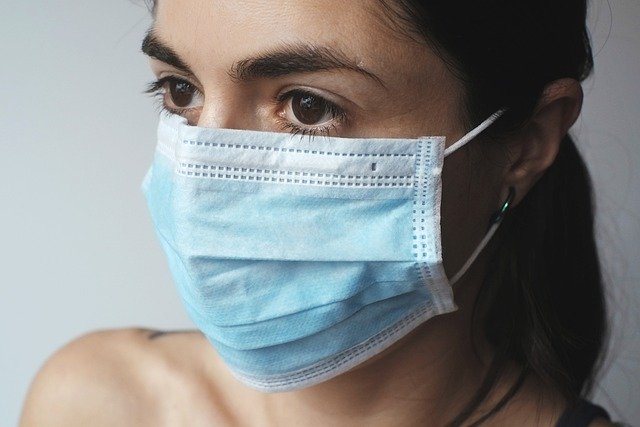Arizona health officials and the governor reassured citizens and employers that the risk for an outbreak of COVID-19 here is low and they laid out steps for everyone to take to prevent its spread.
“I want to assure everyone that the public health care system in Arizona is well prepared to respond to the spread of COVID-19,” Cara Christ, the director of the state’s Department of Health Services said during a joint press conference with Gov. Doug Ducey Monday.
“I can assure you that the top priority of every data-driven and evidence-based action that we take is to keep our communities and families safe while having as minimal of an impact on Arizonans daily lives as possible.”
Christ, who has led the state through three disease outbreaks since 2009, said she understands that the news of the spreading COVID-19 virus can cause fear and anxiety but, for now, there is no need to be alarmed. There is no need to stockpile food and water. There is no need to wear masks.
Six people have died in the U.S.
Six people have now died in the United States including three in Washington state. Arizona has had one confirmed case of COVID-19, also known as the novel coronovirus, and that person has fully recovered, Christ said.
There have been about 90,000 cases worldwide with 3,000 deaths.
The majority of people who contract the illness suffer mild symptoms. But it can be fatal for people who are elderly or have underlying chronic medical conditions, she said.
State lab now able to conduct own tests
Christ, who led the state health team members through the H1-N1 “swine flu” in 2009, the Ebola virus in 2014 and a measles epidemic in 2016, said the Arizona State Public Health Laboratory in Phoenix is now equipped to do its own testing.
Until Monday, patient samples had to be sent to the Centers for Disease Control and Prevention (CDC) to be tested. Now that testing is being done in state, results are available in one to two days.
In Arizona, 26 people have been tested and 24 have been cleared. One was a man at Arizona State University, who had traveled to Wuhan, China, the center of the outbreak. He has since recovered. One other patient is awaiting test results.
A second person has tested “presumptive positive” for coronavirus that is travel-related, according to DHS.
The case is travel related and involves a male patient in his 20s who is “not hospitalized and is recovering at home,” states ADHS in a release. The case is in Maricopa County.
Steps for individuals and employers to take
Christ laid out what measures individuals and employers can take to do their part.
Measures for individuals include:
• Wash hands with soap and water for 20 seconds. Advise young children to sing the “Happy Birthday” song twice as they wash their hands.
• If soap and water are not available, use alcohol-based sanitizer
• Avoid touching the nose, mouth and eyes with unwashed hands
• Avoid close contact with people who are sick
• Do not go out if sick
• Cover mouth with a tissue when coughing or sneezing and dispose of it in trash
• Clean and disinfect recently touched objects and surfaces often
• If sick and need a health care provider, consider using telemedicine to lower the burden on the health care system
Steps employers should take:
• Pinpoint essential functions and have a continuity of operations plan in place in case of an outbreak
• Be prepared to change normal business practices if needed to maintain critical operations such as identify alternative suppliers, prioritize customers or temporarily suspend some operations if needed
• Cross-train staff to perform essential functions so the workplace is able to operate even if key staff members are absent
• Ensure that teleworking agreements are up to date for employees who can telework
• Encourage employees to stay home when sick
• Regularly clean all frequently touched surfaces in the workplace such as workstations, countertops and doorknobs
• Have soap and water available for handwashing and alcohol-based hand sanitizer
Call ahead to health professionals if suspect illness
If people have traveled recently to a place that has been impacted, they should contact a health professional if they develop symptoms within 14 days, Christ said.
And finally, everyone who plans to travel should check the CDC website for travel advisories on locations where outbreaks are occuring.
Public health department websites are also good places to check for the latest information including the DHS website at: www.azhealth.gov/covid19.
No need to panic
As the state and federal agencies work aggressively to pinpoint cases of the virus, there will be larger numbers reported here and elsewhere, Christ said.
“The more we look, the more we find,” Christ said. “An increase in the number of cases does not necessarily mean the disease is more severe.”
Those most at risk
People most at risk of becoming infected with COVID-19 are those who recently traveled to an area with ongoing transmission of the disease and or who have had close contact with someone diagnosed or suspected of having the virus. It is spread person-to-person or through respiratory droplets.
Symptoms typically appear two to 14 days after exposure. They are similar to flu: cough, fever, and shortness of breath. There currently is no vaccine or treatment.
Arizona is in good hands
Gov. Ducey on Monday said that he and state officials are working closely with local and federal officials to identify cases and prepare the community.
The state will distribute educational information to health care providers, first responders, child care providers, schools and colleges, law enforcement, businesses and other organizations.
“Public health and safety are the most important responsibilities of state government and we are taking this threat seriously,” Ducey said.
This story was originally published by Chamber Business News.




